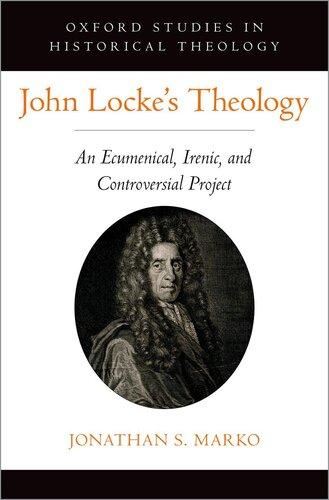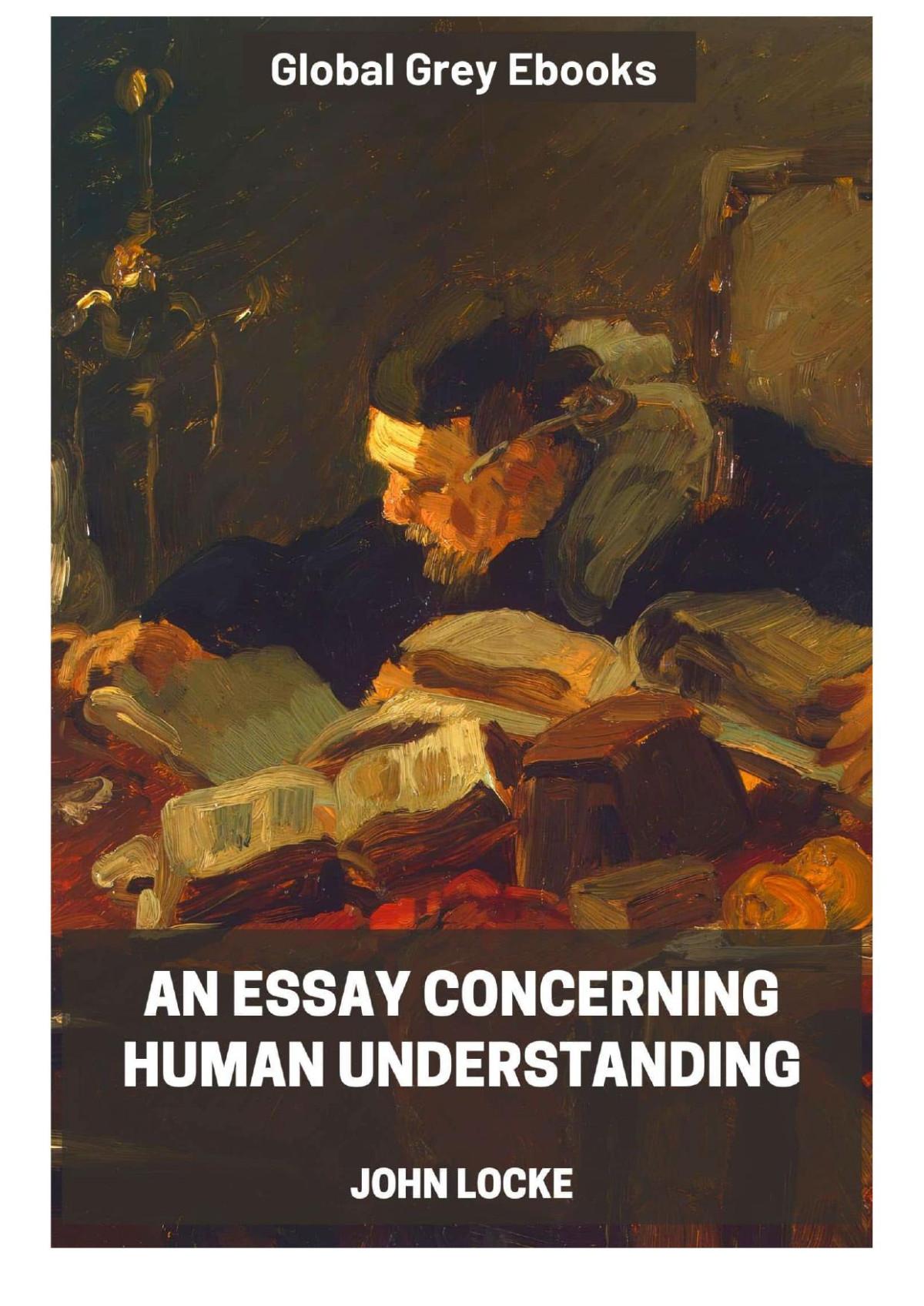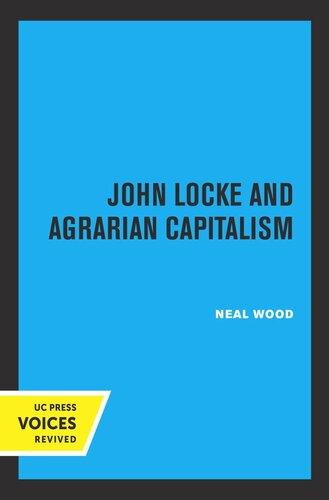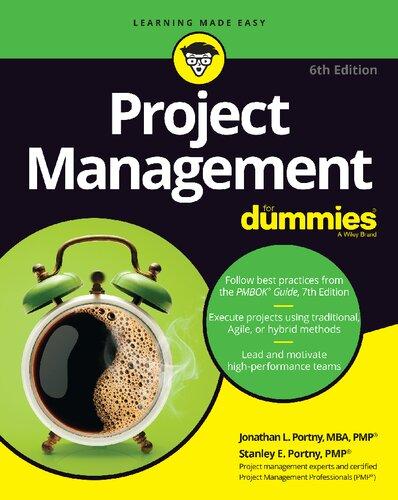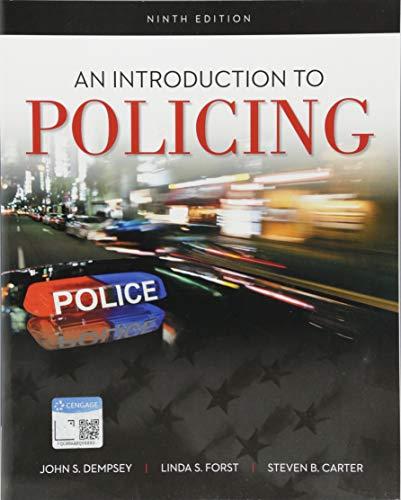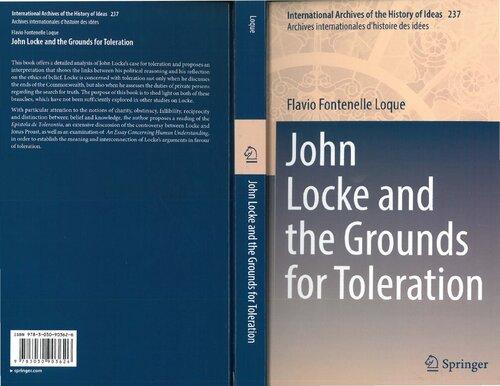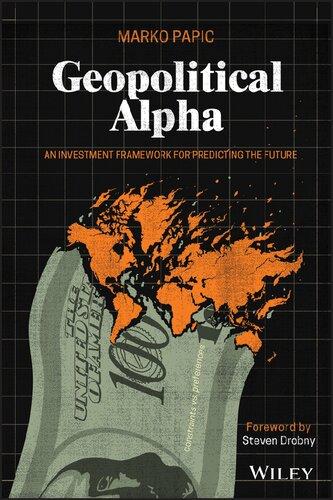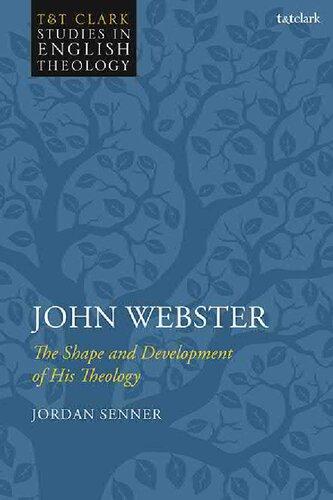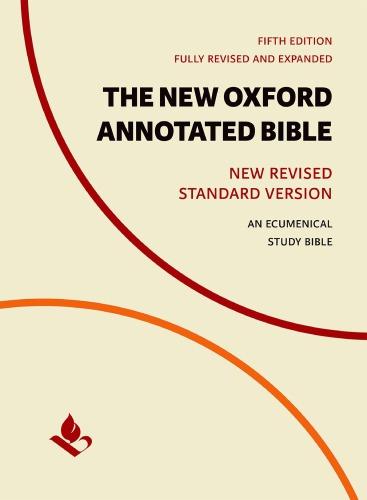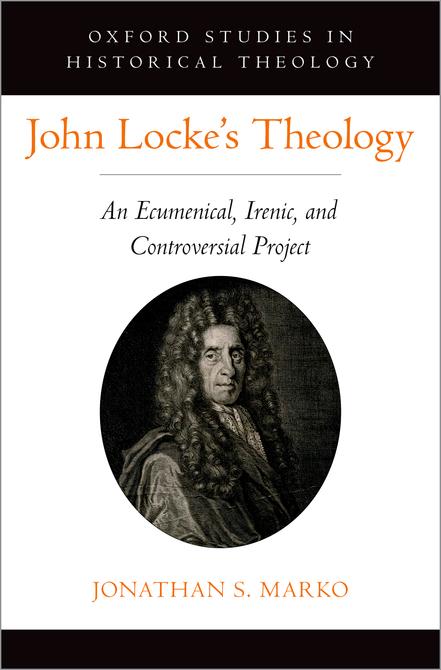John Locke’s Theology
OXFORD STUDIES IN HISTORICAL THEOLOGY
Series Editor
Richard A. Muller, Calvin Theological Seminary
Founding Editor
David C. Steinmetz †
Editorial Board
Robert C. Gregg, Stanford University
George M. Marsden, University of Notre Dame
Wayne A. Meeks, Yale University
Gerhard Sauter, Rheinische Friedrich-Wilhelms-Universität Bonn
Susan E. Schreiner, University of Chicago
John Van Engen, University of Notre Dame
Robert L. Wilken, University of Virginia
THE UNACCOMMODATED CALVIN
Studies in the Foundation of a Theological Tradition
Richard A. Muller
THE CONFESSIONALIZATION OF HUMANISM IN REFORMATION GERMANY
Erika Rummell
THE PLEASURE OF DISCERNMENT
Marguerite de Navarre as Theologian
Carol Thysell
REFORMATION READINGS OF THE APOCALYPSE
Geneva, Zurich, and Wittenberg
Irena Backus
WRITING THE WRONGS
Women of the Old Testament among Biblical Commentators from Philo through the Reformation
John L. Thompson
THE HUNGRY ARE DYING
Beggars and Bishops in Roman Cappadocia
Susan R. Holman
RESCUE FOR THE DEAD
The Posthumous Salvation of NonChristians in Early Christianity
Jeffrey A. Trumbower
AFTER CALVIN
Studies in the Development of a Theological Tradition
Richard A. Muller
THE POVERTY OF RICHES
St. Francis of Assisi Reconsidered
Kenneth Baxter Wolf
REFORMING MARY
Changing Images of the Virgin Mary in Lutheran Sermons of the Sixteenth Century
Beth Kreitzer
TEACHING THE REFORMATION
Ministers and Their Message in Basel, 1529–1629
Amy Nelson Burnett
THE PASSIONS OF CHRIST IN HIGH-MEDIEVAL THOUGHT
An Essay on Christological Development
Kevin Madigan
GOD’S IRISHMEN
Theological Debates in Cromwellian
Ireland
Crawford Gribben
REFORMING SAINTS
Saint’s Lives and Their Authors in Germany, 1470–1530
David J. Collins
GREGORY OF NAZIANZUS
ON THE TRINITY AND THE KNOWLEDGE OF GOD
In Your Light We Shall See Light
Christopher A. Beeley
THE JUDAIZING CALVIN
Sixteenth-Century Debates over the Messianic Psalms
G. Sujin Pak
THE DEATH OF SCRIPTURE AND THE RISE OF BIBLICAL STUDIES
Michael C. Legaspi
THE FILIOQUE
History of a Doctrinal Controversy
A. Edward Siecienski
ARE YOU ALONE WISE?
Debates about Certainty in the Early Modern Church
Susan E. Schreiner
EMPIRE OF SOULS
Robert Bellarmine and the Christian Commonwealth
Stefania Tutino
MARTIN BUCER’S DOCTRINE OF JUSTIFICATION
Reformation Theology and Early Modern Irenicism
Brian Lugioyo
CHRISTIAN GRACE AND PAGAN VIRTUE
The Theological Foundation of Ambrose’s Ethics
J. Warren Smith
KARLSTADT AND THE ORIGINS OF THE EUCHARISTIC CONTROVERSY
A Study in the Circulation of Ideas
Amy Nelson Burnett
READING AUGUSTINE IN THE REFORMATION
The Flexibility of Intellectual Authority in Europe, 1500–1620
Arnoud S. Q. Visser
SHAPERS OF ENGLISH CALVINISM, 1660–1714
Variety, Persistence, and Transformation
Dewey D. Wallace, Jr.
THE BIBLICAL INTERPRETATION OF WILLIAM OF ALTON
Timothy Bellamah, OP MIRACLES AND THE PROTESTANT IMAGINATION
The Evangelical Wonder Book in Reformation Germany
Philip M. Soergel
THE REFORMATION OF SUFFERING
Pastoral Theology and Lay Piety in Late Medieval and Early Modern Germany
Ronald K. Rittgers
CHRIST MEETS ME EVERYWHERE
Augustine’s Early Figurative Exegesis
Michael Cameron
MYSTERY UNVEILED
The Crisis of the Trinity in Early Modern England
Paul C. H. Lim
GOING DUTCH IN THE MODERN AGE
Abraham Kuyper’s Struggle for a Free Church in the Netherlands
John Halsey Wood, Jr.
CALVIN’S COMPANY OF PASTORS
Pastoral Care and the Emerging Reformed Church, 1536–1609
Scott M. Manetsch
THE SOTERIOLOGY OF JAMES USSHER
The Act and Object of Saving Faith
Richard Snoddy HARTFORD PURITANISM
Thomas Hooker, Samuel Stone, and Their Terrifying God
Baird Tipson
AUGUSTINE, THE TRINITY, AND THE CHURCH
A Reading of the Anti-Donatist Sermons
Adam Ployd
AUGUSTINE’S EARLY THEOLOGY OF IMAGE
A Study in the Development of ProNicene Theology
Gerald Boersma
PATRON SAINT AND PROPHET
Jan Hus in the Bohemian and German Reformations
Phillip N. Haberkern
JOHN OWEN AND ENGLISH PURITANISM
Experiences of Defeat
Crawford Gribben
MORALITY AFTER CALVIN
Theodore Beza’s Christian Censor and Reformed Ethics
Kirk M. Summers
THE PAPACY AND THE ORTHODOX
A History of Reception and Rejection
A. Edward Siecienski
DEBATING PERSEVERANCE
The Augustinian Heritage in PostReformation England
Jay T. Collier
THE REFORMATION OF PROPHECY
Early Modern Interpretations of the Prophet & Old Testament Prophecy
G. Sujin Pak
ANTOINE DE CHANDIEU
The Silver Horn of Geneva’s Reformed Triumvirate
Theodore G. Van Raalte
ORTHODOX RADICALS
Baptist Identity in the English Revolution
Matthew C. Bingham
DIVINE PERFECTION AND HUMAN POTENTIALITY
The Trinitarian Anthropology of Hilary of Poitiers
Jarred A. Mercer
THE GERMAN AWAKENING
Protestant Renewal after the Enlightenment, 1815–1848
Andrew Kloes
THE REGENSBURG ARTICLE 5 ON JUSTIFICATION
Inconsistent Patchwork or Substance of True Doctrine?
Anthony N. S. Lane
AUGUSTINE ON THE WILL
A Theological Account
Han-luen Kantzer Komline
THE SYNOD OF PISTORIA AND VATICAN II
Jansenism and the Struggle for Catholic Reform
Shaun Blanchard
CATHOLICITY AND THE COVENANT OF WORKS
James Ussher and the Reformed Tradition
Harrison Perkins
THE COVENANT OF WORKS
The Origins, Development, and Reception of the Doctrine
J. V. Fesko
RINGLEADERS OF REDEMPTION
How Medieval Dance Became Sacred
Kathryn Dickason
REFUSING TO KISS THE SLIPPER
Opposition to Calvinism in the Francophone Reformation
Michael W. Bruening
FONT OF PARDON AND NEW LIFE
John Calvin and the Efficacy of Baptism
Lyle D. Bierma
THE FLESH OF THE WORD
The extra Calvinisticum from Zwingli to Early Orthodoxy
K.J. Drake
JOHN DAVENANT’S HYPOTHETICAL UNIVERSALISM
A Defense Of Catholic And Reformed Orthodoxy
Michael J. Lynch
RHETORICAL ECONOMY IN AUGUSTINE’S THEOLOGY
Brian Gronewoller
GRACE AND CONFORMITY
The Reformed Conformist Tradition and the Early Stuart Church of England
Stephen Hampton
MAKING ITALY ANGLICAN
Why the Book of Common Prayer Was Translated Into Italian
Stefano Villani
AUGUSINE ON MEMORY
Kevin G. Grove
UNITY AND CATHOLICITY IN CHRIST
The Ecclesiology of Francisco Suarez, S.J.
Eric J. DeMeuse
RETAINING THE OLD EPISCOPAL DIVINITY
John Edwards of Cambridge and Reformed Orthodoxy in the Later
Stuart Church
Jake Griesel
CALVINIST CONFORMITY IN POSTREFORMATION ENGLAND
The Theology and Career of Daniel Featley
Gregory A. Salazar
BEARDS, AZYMES, AND PURGATORY
The Other Issues that Divided East and West
A. Edward Siecienski
BISSCHOP’S BENCH
Contours of Arminian Conformity in the Church of England, c.1674–1742
Samuel David Fornecker
JOHN LOCKE’S THEOLOGY
An Ecumenical, Irenic, and Controversial Project
Jonathan S. Marko
John Locke’s Theology
An Ecumenical, Irenic, and Controversial Project
JONATHAN S. MARKO
Oxford University Press is a department of the University of Oxford. It furthers the University’s objective of excellence in research, scholarship, and education by publishing worldwide. Oxford is a registered trade mark of Oxford University Press in the UK and certain other countries.
Published in the United States of America by Oxford University Press 198 Madison Avenue, New York, NY 10016, United States of America.
© Oxford University Press 2023
All rights reserved. No part of this publication may be reproduced, stored in a retrieval system, or transmitted, in any form or by any means, without the prior permission in writing of Oxford University Press, or as expressly permitted by law, by license, or under terms agreed with the appropriate reproduction rights organization. Inquiries concerning reproduction outside the scope of the above should be sent to the Rights Department, Oxford University Press, at the address above.
You must not circulate this work in any other form and you must impose this same condition on any acquirer.
Library of Congress Cataloging-in-Publication Data
Names: Marko, Jonathan S., author.
Title: John Locke's theology : an ecumenical, irenic, and controversial project / Jonathan S. Marko.
Description: New York, NY, United States of America : Oxford University Press, [2023] | Series: Oxford STU in historical theology series | Includes bibliographical references and index.
Identifiers: LCCN 2022053518 (print) | LCCN 2022053519 (ebook) | ISBN 9780197650042 (hardback) | ISBN 9780197650066 (epub) Subjects: LCSH: Locke, John, 1632-1704. | Theology, Doctrinal. Classification: LCC B1298 .R4 M37 2023 (print) | LCC B1298 .R4 (ebook) | DDC 192—dc23/eng/20230302
LC record available at https://lccn.loc.gov/2022053518
LC ebook record available at https://lccn.loc.gov/2022053519
DOI: 10.1093/oso/9780197650042.001.0001
Printed by Integrated Books International, United States of America
For
Craig Stevens Marko and Pamela Susann Marko, née Beahn
Proverbs 1:8–9
4.
5.
PART II: THE REASONABLENESS OF REVELATION
6.
PART III: PARALLELS IN LOCKE’S LARGER CORPUS
7. John Locke and the “Free Will” Controversies: Why “Of Power” Is
9. Can One Assent to The Doctrine of the Trinity According to
Preface
My fascination with John Locke and the thinkers of his era sprouted through two concurrent doctoral seminars at Calvin Theological Seminary in 2009, one led by Ronald J. Feenstra (“Prolegomena”) and the other led by Richard A. Muller (“17th-century Metaphysics”). These two loved doctors opened new vistas for us and trained us to be clear, careful, and charitable. My main fruits from the seminars were a paper on the categories of propositions promulgated by John Locke and John Toland and another on the Anthony Collins–Samuel Clarke debate on liberty and necessity. By the end of the term, I was hooked on this era, especially philosophical and theological thinkers coming from the British Isles. I went on to write my dissertation (later published), building upon the work I had already done on Locke and Toland. It proved to be a fine beachhead for further exploration of the Enlightenment.
This book is mostly the culmination of my research to date in Locke while joyfully teaching at Cornerstone University and through conference papers mostly delivered at the Evangelical Theological Society’s regional and national conferences. These two institutions have been crucial to the writing of my book. One provided me with a “due date” for drafts of chapters and venues in which to receive feedback, among many other benefits. The other gave me supportive colleagues, financial resources, insightful and fun students, and time. Cornerstone awarded me a full-semester sabbatical for this book in the fall of 2019. And its librarians, particularly Gina Bolger, consistently and quickly delivered works to me that were not part of our library’s holdings.
There are so many other people for whom I am grateful. I am thankful for the individuals in whose company I happily find myself on occasion who have given me theologically rich conversations and friendship: John Duff, Matthew Everhard, Benjamin Marko (brother), Drew McGinness, and Michael Wittmer, just to name a few. They all love the Lord and truth. The person to whom I owe the most gratitude in this group is Richard A. Muller. His best scholarly accomplishments might not be the great number of
brilliant articles, chapters, books, and series he has penned and edited, but rather the great number of scholars he has mentored and the camaraderie he has helped cultivate amongst his students. We are not only better scholars, but better people because of him.
I would also like to express gratitude for my families. There is of course my church family. They have been a constant source of friendship, support, and theological dialogue. Also, without the support of my wife, this book would never have been written. While I have cheered on or come alongside of her for the last seventeen years, she has done likewise for me but much better. I am thankful to my three daughters. They have brought me unforeseen joy. I dedicate this book to my parents, Craig Stevens Marko and Pamela Susann Marko, née Beahn, residing in my hometown, Cuyahoga Falls, Ohio. They taught me and my beloved siblings much. Two mindsets they instilled in us often come to mind when I think about our upbringing: the importance of valuing good company and how to persist.
I also need to thank the unknown reviewers, editors, and the many people who have had a hand in the completion of this book. The insights of the initial reviewers and Muller were invaluable. I count them as collaborators on this work. I learned so much from them along the way.
Gratitude is due to a few others as well. Without the work of the collaborators and collectors of the Post-Reformation Digital Library (PRDL), my work would have been greatly slowed. I visit it and recommend it often. I also want to thank the editors of the Journal of Markets and Morality (Acton Institute) (JMM) and Philosophy and Theology (Marquette University) (PT) for publishing some of my work on Locke and allowing me to publish greatly expanded and re-worked journal articles as chapters in this book: Chapter 3 (PT), Chapter 5 (JMM), and Chapter 7 (PT).
Finally, I have a few comments on the structure of this book. Each chapter can stand on its own. I give a full bibliographical first reference of works used in each chapter, partly for this reason. But each chapter also has a complementary chapter. The final arrangement of the book has separated two companion chapters into different ends of the book. Chapters 3 (justification in The Reasonableness of Christianity [ROC]) and 4 (fundamental articles in ROC) are mutually supportive, as are Chapters 5 (special revelation in ROC) and 6 (miracles in ROC). Chapters 8 (the question of Locke’s use of “above reason”) and 9 (the question of Locke’s position on the Trinity) are also mutually reinforcing. But Chapters 2 (soteriology and theology in
Preface xix
Locke’s “non-theological” works) and 7 (free will in the Essay) nicely complement each other. But the foci of Chapter 2, its introduction of Locke’s body of writing, and its comparative simplicity make it the most fitting chapter with which to start Part I.
Jonathan S. Marko Cascade Township, MI
The Problems of Understanding John Locke
Inconsistent Labeling
John Locke published The Reasonableness of Christianity (ROC) in 1695. It is a somewhat lengthy theological treatise that starts with explication of certain points of doctrine that was deemed heterodox by traditional Protestants. The bulk of the book contains a painstaking proof of what the fundamental articles of the Christian faith are and why. He does discuss miracles, morality, and other theological and philosophical topics. But, interestingly, it perhaps received more attention for what was not in it. Locke avoided making explicit references to standard Christian doctrines such as the doctrine of the Holy Trinity and the atonement. Theologian John Edwards lambasted Locke’s writings for being Socinian and this resulted in a protracted debate that pulled in others. Edwards attacked Locke in a number of works and the latter responded in kind. From this debate came two vindications of Locke’s theological treatise: the first, A Vindication of The Reasonableness of Christianity, was a shorter work; and A Second Vindication was a comparatively massive work that contains many cutting responses, clarifications of ROC, and reveals much of Locke’s theological programmatic intent of ROC. 1
1 John Locke, The Reasonableness of Christianity, as Delivered in the Scriptures, 2nd ed. (London: Printed for Awnsham and John Churchil, 1696); John Locke, A Vindication of the Reasonableness of Christianity, etc., From Mr. Edwards’s Reflections (London: Awnsham and John Churchil, 1695). This was published along with the 1696 second edition of ROC. John Locke, A Second Vindication of the Reasonableness of Christianity, etc. (London: A. and J. Churchil, 1697); John Locke, An Essay Concerning Human Understanding, ed. Peter H. Nidditch (Oxford: Clarendon Press, 1979). Pertinent works from Edwards and Bold are as follows: John Edwards, Some Thoughts Concerning the Several Causes and Occasions of Atheism, Especially in the Present Age. With Some Brief Reflections on Socinianism: And on a Late Book Entituled The Reasonableness of Christianity as Deliver’d in the Scriptures (London: Printed for J. Robinson, 1695); John Edwards, Socinianism Unmask’d. A Discourse Shewing the Unreasonableness of a Late Writer’s Opinion Concerning the Necessity of Only One Article of Faith; and of His Other Assertions in His Late Book, Entituled, The Reasonableness of Christianity as Deliver’d in the Scriptures, and in His Vindication of It. With a Brief Reply to Another (Professed) Socinian Writer (London: Printed for J. Robinson, 1696); John Edwards, The Socinian Creed: or, A Brief Account of the Professed Tenents and Doctrines of the Foreign and
John Locke’s Theology. Jonathan S. Marko, Oxford University Press. © Oxford University Press 2023. DOI: 10.1093/oso/9780197650042.003.0001
Locke would soon have other issues. Bishop Edward Stillingfleet soon accused Locke not of heresy, but for unwittingly paving the way for the heterodox opinions promulgated in the infamous book, Christianity Not Mysterious, by John Toland. Locke’s works were again associated with Socinian thought. Even though Locke defended himself well in both controversies, getting the best of both of his interlocutors in the minds of many, he would never be rid of a dogged association with Socinianism. There is wisdom, then, in Locke’s comment to Stillingfleet amidst their debate: “It is an Observation, I have somewhere met with, That whoever is once got into the Inquisition, Guilty or not Guilty, seldom ever gets clear out again.”2 Yet, in the minds of some he did escape. Instead of being portrayed as heterodox, he is consistently portrayed as being “orthodox” (or at least relatively so) by scholars who focus upon the rise of natural religion or deism narrative. There he is routinely juxtaposed against John Toland who is portrayed as appropriating his epistemological fundamentals not into Socinianism, as was the original charge, but deism.
There are a few observations I would like to make about the above account that has pertinence to this present work. First, the application of labels like heterodox and orthodox (and even Socinian) all depend upon against whom Locke is being compared. This is perhaps not so surprising. Second, the context in which Locke wrote and thought was very contentious and complicated. It is convenient and somewhat efficient to discuss him in the context of the advancement of Socinianism or in the rise of deism or natural religion, but there is so much more going on during that period. England was rife with theological and philosophical controversy, not to mention similar trends in other spheres of life and thought. So, in this present book we will
English Socinians. Wherein Is Shew’d the Tendency of Them to Irreligion and Atheism. With Proper Antidotes Against Them (London: Printed for J. Robinson, 1697). Samuel Bold’s A Collection of Tracts, Publish’d in Vindication of Mr. Lock’s Reaosnableness of Christianity, as Deliver’d in the Scriptures, etc. (London: Printed for A. and J. Churchil, 1706) has the following relevant tracts: A Short Discourse of the True Knowledge of Christ Jesus (London: Printed for A. and J. Churchil, 1697); Some Passages in The Reasonableness of Christianity, etc. and Its Vindication. With Some Animadversions on Mr. Edwards’s Reflections on the Reasonableness of Christianity, and on His Book, Entituled, Socinianism Unmask’d (London: Printed for A. and J. Churchil, 1697); and A Reply to Mr. Edwards’s Brief Reflections on A Short Discourse of the True Knowledge of Christ Jesus, etc. To Which is Prefixed a Preface, Wherein Something Is Said Concerning Reason and Antiquity, in the Chief Controversies with the Socinians (London: Printed for A. and J. Churchil, 1697). For a nice collection of excerpts of contemporary works related to ROC: John Locke and Christianity: Contemporary Responses to The Reasonableness of Christianity, ed. and intro. Victor Nuovo (Bristol: Thoemmes Press, 1997).
2 John Locke, Mr. Locke’s Reply to the Right Reverend the Lord Bishop of Worcester’s Answer to His Letter, Concerning Some Passages Relating to Mr. Locke’s Essay of Humane Understanding: In Late Discourse of His Lordships, In Vindication of the Trinity (London: Printed by H. Clark, for A. and J. Churchill, 1697), 107.
not only explore the theological and philosophical works of Locke, but also the controversies in which they were forged.
Overall Argument
The primary argument of this book is that John Locke’s intent for ROC was to describe and defend his version of the foundational or fundamental doctrines of Christianity during a very theologically and philosophically controversial time and not his own personal views. Locke desired to describe what makes one a Christian in the simplest and most irenic terms and to argue for the necessity of Scripture and the reasonableness of God’s means of conveying his messages. Both revelation and the promulgated redemption are eminently reasonable.
Locke’s theological writings, namely ROC and its two vindications, are an intentionally ecumenical and irenic project written amidst numerous complex theological and philosophical controversies. He argued for the simplicity of the Christian faith, to which the uneducated and the laborers could assent. The writings themselves were inadvertently controversial and regarded as suspect due in part to Locke’s refusal to assert more than he thought warranted or desired, his lack of accommodation to the theological terminology and paradigms of his day, a studious avoidance of metaphysical pronouncement, and his failure to realize that most readers will not make a distinction between his personal and programmatic positions. His lack of doctrinal specificity often incensed self-professed orthodox thinkers and nettled metaphysicians, who did not recognize or accept the aims of his program. And the project was personal or individually focused in the sense that through it he foisted the burden of understanding the Bible and arriving at theological convictions on the autonomous individual, including the uneducated, and dismissed basing one’s doctrinal opinions on so-called authorities as epistemologically illegitimate. This advancement of an individualized or personal orthodoxy and his accompanying theological framework for Christians to build upon was intended to refine the Reformation and counter certain Post-Reformation trends: adherence to his project would yield more and better Christians, less negative priestly influence and thus fewer unhelpful controversies and less sectarianism, and a thriving society. What is more, the claim of his intentional ecumenicity is bolstered by the ease of appropriation of his thoughts by orthodox and heterodox thinkers alike, a particular point not dealt with here, but demonstrated elsewhere by others. All
of this helps explain the difficulty scholarship has had in labeling Locke along the lines of more traditional Christian sects. Of course, there were certain theological positions and worldviews that he vigorously opposed, such as deism, enthusiasm, and antinomianism.
Scholarship
Problematic Tendencies
There are a few trends that are present in many works on Locke that have been counterproductive to understanding his writings. First, there are far too many compartmentalized approaches. Locke was not simply an epistemologist, or political scientist, or a theologian, etc. He was a polymath, and a rather systematic one. As I will note in the next chapter, even his major “nontheological” works have strands of theological thought in them. As a case in point, his A Letter Concerning Toleration is arguably just as much a theological work as it is a political one. Thus, approaching one of his works attempting to isolate one of Locke’s mental spheres makes one’s reading of him liable to distortion. Second, the theological context of Locke’s works is far more complex than most realize. For instance, Calvinism and Arminianism, terms frequently used in recent Locke scholarship, do not describe two monoliths at odds. Not only do these terms reference varied theological movements, but there are also other traditions engaged in Locke’s conversation, notably the Lutherans and Anabaptists. Third, there has been a lack of appreciation that Locke’s theology in ROC is more programmatic than it was personal. He says as much in ROC, but there are some reasons many conflate the two. As I will argue, there are important differences between understanding Locke’s ROC as programmatic as opposed to being personal. In what follows, I am less interested in trying to decipher Locke’s personal views than in understanding his theological program, its implications, and to some degree how it ties in to or is adumbrated in other Lockean works.
On the Ecumenical Intent of ROC
In the main, I will be interacting with scholarship that focuses on ROC, what Locke intended to do with it, and why it is notably different in certain
respects from his Essay, etc. There is no perfect way in which to divide them, but there are certain patterns of argument into which scholars have frequently fallen pertaining to Locke’s professed ecumenical and irenic intent for ROC and the authority of Scripture advanced therein. First, there is what I will call the surreptitious group. This is a significant group of scholars, like Leo Strauss, Michael S. Rabieh, and Steven Forde, who read Locke as religiously surreptitious (because corrosive). They think that such characteristics such as inconsistencies between the Essay and ROC or a seeming meager defense of miracles is evidence that Locke appeals to the Bible (exoterically) while simultaneously trying to undercut its authority (esoterically). His claims of irenicism and ecumenism are, thus, wholly feigned. There is a small and related group, consisting at least of Nicholas Jolley and Michael Ayers— who focus on the Essay who think Locke is undercutting Christianity but do not emphasize an attempt on Locke’s part to hide it.3 The next group, the sectarian group, find his ecumenical claims insincere or Locke to be rather obtuse in making them and read ROC as being religiously sectarian. While earlier this group tended to frame him and ROC as Socinian (as John Edwards did) some more recent thinkers have described both as Arminian.4 There are some well-noted scholars in this group, such as Victor Nuovo, John Marshall, and Stephen D. Snobelen, to name a few.
The other group of scholars that stand in contrast to those named immediately above, I will call the sincere group. They tend to read Locke’s claims
3 The following are notable examples of those who read Locke as being religiously surreptitious: Steven Forde, “Natural Law, Theology, and Morality in Locke,” American Journal of Political Science 45, no. 2 (April 2001): 396–409 [ref. pp. 407–8]; Leo Strauss, Natural Right and History (Chicago: The University of Chicago Press, 1953); Leo Strauss, Persecution and the Art of Writing (Chicago: The University of Chicago Press, 1952; Reprint, 1988); Michael S. Rabieh, “The Reasonableness of Locke, or the Questionableness of Christianity,” Journal of Politics 53, no. 4 (November 1991): 933–57; Jonathan Donald Conrad, “Locke’s Use of the Bible in: The Two Treatises, The Reasonableness of Christianity, and A Letter Concerning Toleration” (Ph.D. diss., Northern Illinois University, 2004); David Foster, “The Bible and Natural Freedom in John Locke’s Political Thought,” in Piety and Humanity, ed. Douglas Kries (Lanham: Rowman and Littlefield, 1997), 181–212. Foster’s earlier claims are in the same vein as Conrad’s. He concludes his essay with the suggestion that Locke rejects “crucial elements of the biblical teaching on God, property, and the family.” See also: Nicholas Jolley, “Locke on Faith and Reason,” in The Cambridge Companion to Locke’s “Essay Concerning Human Understanding”, ed. Lex Newman (Cambridge: Cambridge University Press, 2007), 436–55; Michael Ayers, Locke Volume 1: Epistemology (New York: Routledge, 1991), 122.
4 Maurice Cranston, John Locke: A Biography (New York: The MacMillan Company); John Marshall, “Locke, Socinianism, ‘Socinianism’, and Unitarianism,” in English Philosophy in the Age of Locke, ed. M. A. Stewart (Oxford: Clarendon Press, 2000), 111–82; Victor Nuovo, “Locke’s Theology, 1694–1704,” in English Philosophy in the Age of Locke, ed. M. A. Stewart (Oxford: Clarendon Press, 2000), 183–216; Victor Nuovo, Christianity, Antiquity, and Enlightenment: Interpretations of Locke (New York: Springer, 2011); Stephen D. Snobelen, “Socinianism, Heresy and John Locke’s Reasonableness of Christianity,” Enlightenment and Dissent 20 (2001), 88–125; Dewey Wallace, “Socinianism, Justification by Faith, and the Sources of John Locke’s The Reasonableness
of ecumenical and irenic intent for ROC and his claims of the authority of Scripture as being sincere, although they will often admit perplexity how to understand or reconcile various places in Locke’s works that pertain to religion, or they claim that he has made honest errors. This is perhaps the largest of the three groups and carries with it some very prominent names in Locke scholarship across the various fields: Nicholas Wolterstorff, John Dunn, Alan P. F. Sell, and Richard Ashcraft, to name a few.5 In following this line of argument, I will offer a richer and broader theologically oriented context for ROC. I will also be more attentive to the distinction between Locke’s personal and programmatic theologies. In so doing, I believe I have reconciled some of the major concerns over cohesiveness among Locke’s major works.
Focusing on the Narratives and Singular Issues
There are several scholarly narratives of which Locke is often a part that will be engaged in this book. As already mentioned above, Locke is sometimes found in works covering or commenting on the advance of Socinianism or Unitarianism in England like those of McLachlan or John Marshall.6 Locke
of Christianity,” Journal of the History of Ideas 45, no. 1 (January–March 1984): 49–66. Cf. Hans Boersma, A Hot Pepper Corn: Richard Baxter’s Doctrine of Justification in Its Seventeenth-Century Context of Controversy (Vancouver: Regent College Publishing, 2004); Joanne Tetlow, “John Locke’s Covenant Theology,” Lock Studies 9 (2009): 167–99; Donald Thomas Smith, “John Locke’s Concept of Reasonable Christianity” (Ph.D. diss., Southern Methodist Seminary, 1997); Diego Lucci, John Locke’s Christianity (Cambridge: Cambridge University Press, 2020). Lucci believes that Locke’s “moralist soteriology” in ROC has Socinian and Arminian roots (7, 52–53, 211). He asserts Locke did intend ROC to be irenic while simultaneously contending that Locke’s religion is unique (8).
5 Alan P. F. Sell, John Locke and the Eighteenth-Century Divines (Cardif: University of Wales Press, 1997), 186–88 [quotation, p. 188]; John C. Higgins-Biddle, Introduction to The Reasonableness of Christianity: As Delivered in the Scriptures, ed. John C. Higgins-Biddle (Oxford: Clarendon Press, 1999), xv–cxv [reference, pp. lxxiv, cviii–cxv]; John Dunn, The Political Thought of John Locke: An Historical Account of the Argument of the ‘Two Treatises of Government’ (Cambridge: Cambridge University Press, 1969); Nicholas Wolterstorff, “John Locke’s Epistemological Piety: Reason is the Candle of the Lord,” Faith and Philosophy 11, no. 4 (October 1994): 572–91; Richard Ashcraft, “Faith and Knowledge in Locke’s Philosophy,” in John Locke: Problems and Perspectives, ed. John W. Yolton (Cambridge: Cambridge University Press, 1969), 194–223; Stuart Brown, “Locke as Secret ‘Spinozist’: The Perspective of William Carroll,” in Disguised and Overt Spinozism Around 1700: Papers Presented at the International Colloquium held at Rotterdam, 5–8 October 1994, ed. Wiep Van Bunge and Wim Klever (New York: E. J. Brill, 1996), 213–34; Steven M. Dworetz, The Unvarnished Doctrine: Locke, Liberalism, and the American Revolution (Durham: Duke University Press, 1990); Greg Forster, John Locke’s Politics of Moral Consensus (Cambridge: Cambridge University Press, 2005), 141–42; J. T. Moore, “Locke on the Moral Need for Christianity,” The Southwestern Journal of Philosophy 11 (1980): 61–68.
6 H. McLachlan, The Religious Opinions of Milton, Locke and Newton (Manchester: University of Manchester Press, 1941); Marshall, “Locke, Socinianism, ‘Socinianism’.”
is perhaps most often mentioned in the account of the rise of deism or natural religion in England. These works tend to mention Locke and John Toland and give little or no analysis other than mentioning their differences in their respective categorizations of propositions. Works mainly focusing on Toland will routinely juxtapose him with Locke in the same way, but those comparisons are also typically shallow.7 Locke’s relationships to the Latitudinarians (during his years of publishing) and their intellectual forbearers in a sense, the Cambridge Platonists, are also the foci of some good Lockean scholarship coming from those like Griffin Martin, John Marshall, G. A. J. Rogers, and Patrick Müller.8
There are also particular issues in religion for which Locke receives attention. Some of them overlap with some of the above categories. For instance, it is commonplace for narratives covering the rise of deism to at least broach the topic of the relationship of revelation and reason or the categorization of propositions by pointing out that Toland rejects doctrines and propositions that are above reason while Locke accepts them. Locke’s treatment of miracles and of the doctrine of the Holy Trinity are other topics that have been explored.
Figures and Doctrines that Could Have Been Given Their Own Essays
There are a few figures and doctrines about which so much is said in the book that it would not have been too much of a stretch for one or more of them to have been the primary foci of their own chapter. In terms of figures,
7 For example, James Livingston, Modern Christian Thought, 2 vols., 2nd ed. (Minneapolis: Fortress Press, 2006), namely 1:18–21; Robert E. Sullivan, John Toland and the Deist Controversy: A Study in Adaptations (Cambridge: Harvard University Press, 1982), 79; William Uzgalis, “Anthony Collins” in Stanford Encyclopedia of Philosophy (first published on August 25, 2002 with substantive revisions February 23, 2009; accessed on March 13, 2009) http://plato.stanford.edu/entries/collins, 13–14; Gerald R. Cragg, Reason and Authority in the Eighteenth Century (Cambridge: Cambridge University Press, 1964), 67, 78, 83; Lucci, John Locke’s Christianity, 24.
8 Martin I. J. Griffin, Jr., Latitudinarianism in the Seventeenth-Century Church of England, ann. Richard H. Popkin and ed. Lila Freedman (New York: E. J. Brill, 1992). John Marshall, “John Locke and Latitudinarianism,” in Philosophy, Science, and Religion in England 1640‒1700, ed. Richard Kroll, Richard Ashcraft, and Perez Zagorin (New York: Cambridge University Press, 1992), 253–82; G. A. J. Rogers, “Locke and the Latitude-Men: Ignorance as a Ground of Toleration,” in Philosophy, Science, and Religion in England 1640‒1700, ed. Richard Kroll, Richard Ashcraft, and Perez Zagorin (New York: Cambridge University Press, 1992), 230–52; Patrick Müller, Latitudinarianism and Didacticism in Eighteenth-Century Literature: Moral Theology in Fielding, Sterne, and Goldsmith (New York: Peter Lang, 2009).
an essay on Samuel Bold would arguably fit well. He seemed to understand Locke’s ROC better than any other commentator, past or present. They are very similar in many respects, which will be pointed out during the course of the book. Bold was very much an irenic and ecumenically minded thinker in a very similar vein to Locke (Something similar could be said about John Toland regarding the Essay, although Locke might not approve of where he actually deviated from him or that Toland’s personal–programmatic balance weighed too heavily toward the personal). In terms of doctrines that could have been given a more direct or singular chapter are the traditional attributes of Scripture—authority, necessity, perspicuity, and sufficiency— and interpretation principles. The former topic would be easily culled from Locke’s express words, while the latter would mostly need to be inferred.
Approach of the Book
While this book sets out to describe and show the coherence of Locke’s theological and philosophical responses to certain theological controversies, it is not a full systematizing of Locke’s published theology. If one were to develop a full “theology of Locke,” it would be rather general and biblical. What is more, Locke did not set forth this irenic and ecumenical approach in all his works, even though one can observes glimpses of it elsewhere. In many of his works, he simply held back from making hasty conclusions or pronouncing upon issues for which there was no urgency to do so. His avoidance of taking sides in the Trinitarian and free will debates was intentional.
Taken together, the following chapters answer major questions that could not have been feasibly answered and defended through just one essay. Chapter 2 offers an overview of Locke’s major works. I hold that Locke’s major “non-theological” works demonstrate a sincere preoccupation with biblical Christianity, especially eternal salvation, the primary focus of ROC. I am not yet claiming that the Bible or theology or his concern over the salvation of souls is the singular key to observing the coherence of these works or that they were his main motivating factor for them. But theology in general and soteriology in particular are leitmotifs that cannot be ignored in studying Locke’s corpus. Moreover, this argument can be viewed as evidence of Locke being a rather systematic and meticulous polymath. I am not aware of any study that has traced the theme of eternal salvation in Locke’s major works.
The rest of Part I, Chapters 3 and 4, focus on Locke’s soteriology within ROC. Both chapters have the overarching theme of how reasonable Locke finds the Christian religion’s soteriology to be. And this is where the book starts to focus on Locke’s program of basic Christianity. In Chapter 3, I situate ROC in the context of the justification debates of Locke’s era and controversies focusing on the doctrines of Christ and the Holy Spirit. I argue that Locke’s presentation of justification, the primary topic in ROC, and the soteriological framework in which it is placed are intended to be broad enough to encompass all “Christian” views on the topics except antinomian ones. Much the same can be said of his Christology and Pneumatology. The focus of ROC is not Locke’s personal views of justification, the broader doctrine of salvation, or any other theological topic. Locke intended for the work to be ecumenical and irenic in its core.
In Chapter 4, I look at ROC and its vindications from the standpoint of the fundamental articles debate taking place in the years of Locke’s writing. I maintain that Locke argues that the fundamental articles are reasonably minimal and explicitly from the Messiah. This position supports religious toleration and is not wholly novel. Locke thought that because people must be able to cull for themselves (although not wholly in isolation) any articles from Scripture to claim that they believe them—lest they be guilty of a brand of illegitimate, implicit faith—it is perfectly reasonable that the fundamental articles in Scripture are few in number and clear—otherwise the vulgar or commoners are practically ruled out from being saved—and expressly from the Messiah Himself—lest, among other things, the continuity of the church be disrupted and the definition of a Christian be subject to change. A corollary to this is the need for a relatively high degree of religious toleration. Moreover, while Locke tied these elements systematically together, there were others in the era who advanced one or more of these elements. Finally, in so arguing for the above, I will direct the reader’s attention to Locke’s keen concern for and interest in the eternal salvation of humans.
In Part II, namely Chapters 5 and 6, I continue to cull Locke’s understanding of basic Christianity, but this time pointing out how reasonable he finds God’s means of conveyance of the message of salvation (among other doctrines) to be. Chapter 5 focuses on Locke’s understanding of the necessity of Scripture, set within the historical context of the controversy over innate ideas and the closely related rise of natural religion or deism. There, I argue that John Locke’s belief that Christianity is epistemologically vital to the spread and maintenance of right morals in society is demonstrated by
